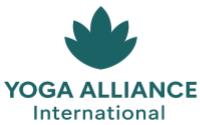Recognition for Yoga Teachers and Schools Based on Skills, Experience, and Training — Not Bureaucracy.
Do You Need to Register After Yoga Teacher Training?
Many new yoga teachers feel confused after finishing teacher training. Registration rules appear vague. Yoga schools advertise registration benefits. Students hear conflicting advice from studios, teachers, and online communities. The truth remains simple. Canada has no legal registration requirement for yoga teachers. No province regulates yoga teaching as a licensed profession. Private organizations run registration systems, not the government. This creates choices rather than obligations.
Yoga teachers must understand this difference. Registration is optional. It can help with credibility or marketing. It does not replace skill. It does not guarantee quality. It does not offer legal protection equal to regulation. This blog explains the truth clearly. You will learn what registration actually means, who controls it, and how it affects your career. You will also learn why many Canadian teachers skip registration and still teach successfully.
I also explain how Yoga Alliance International offers a flexible alternative for teachers wanting recognition without unnecessary barriers. Use this blog as your guide, not pressure from studios or organizations. You remain free to choose the best path for your goals.
Understanding Yoga Registration in Canada (Minimum 200 Words)
Yoga teaching in Canada operates in a unique space. The government does not regulate yoga as a health profession. That means no Canadian law requires teachers to hold any registration. Many people believe registration is mandatory because they confuse yoga with regulated fields. Massage therapists, physiotherapists, and counsellors follow strict legal frameworks. Yoga teachers do not. You can teach yoga with skill, experience, and confidence without public licensing. Private registration organizations do not change this reality.
The largest private registry is Yoga Alliance in the United States. It runs a membership system. It does not regulate yoga teachers. It only lists them. Many people misinterpret this as official certification. It is not. No Canadian government body recognizes Yoga Alliance as a regulator. Some studios request Yoga Alliance membership. They do this for branding or insurance alignment. These requests remain policies, not laws. They differ by studio and region.
Canada also has Yoga Alliance International. This is an inclusive registration body. It evaluates teachers through video assessments and exams. It skips the rigid studio-only model. Many teachers select this option because it better reflects modern education. Online training expanded after COVID. Many teachers need flexible recognition that fits the new landscape of digital learning.
Insurance companies in Canada accept many organizations. They rarely demand one registry. They care more about proof of training hours. This means your actual training matters more than your affiliation. Registration can still help with marketing. Students searching online may trust registered teachers. Some studios use registration as a hiring filter. You must decide if those benefits matter for your goals. Teachers who run private classes or online sessions often skip registration entirely. They build strong businesses through reputation, teaching ability, and consistent practice.
Should You Register After Yoga Teacher Training? The Practical Truth (Minimum 200 Words)
Many new graduates wonder if registration affects real success. The practical truth is simple. Registration helps in specific situations. It does not define your career. Teachers succeed through skill, consistency, and connection. Registration only supports those strengths. It does not create them. Understanding this difference prevents wasted money and misplaced expectations.
Studios may ask for registration when hiring. They often choose policies based on branding or history. These policies vary widely. One studio may prefer Yoga Alliance. Another may accept Yoga Alliance International. Another may not care at all. Private yoga teaching does not require registration. Corporate classes rarely demand it. Online teaching platforms focus on presentation, not membership. Retreats and workshops depend more on your experience.
Registration can help with SEO. Registered teachers appear in specific directories. These listings create backlinks and trust signals. Many teachers use registration for marketing. It becomes part of their story. Teachers who want to build a professional brand often register for this purpose alone. Registration also creates structure. It motivates teachers to maintain practice, education, and development.
Insurance is another factor. Some people believe registration affects insurance eligibility. This is not correct. Insurance providers look for training documentation. They do not require Yoga Alliance membership. They accept many training backgrounds. Some even accept non-registered practitioners with relevant experience. Insurance companies care about honesty, clarity, and risk. Registration only helps when the provider uses it as a simple reference.
The final decision depends on your goals. If you want studio work, check their policy. If you want private clients, decide based on branding value. If you want to teach online, focus more on video skill and niche expertise. Registration remains optional in all cases.
Alternatives to Registration and Why Many Teachers Skip It (Minimum 200 Words)
Many teachers skip registration entirely. They do this for rational reasons. Registration costs money each year. Many teachers see no return on that investment. Their work comes through referrals, social media, and community presence. They never get clients from registry directories. They do not need membership badges to build trust. A clear website and a strong teaching style work better.
Some teachers avoid registration because it creates confusion. Students may assume registration equals regulation. Teachers prefer transparency. They explain their background, hours, and certifications directly. Personal storytelling increases trust more than logos. Many teachers promote their training lineage instead. Students value lineage more than membership.
Another group skips registration because they use modern training paths. They may complete online programs, hybrid programs, or advanced mentorships. Some private registries do not recognize these structures. Teachers prefer organizations like Yoga Alliance International, which accept digital education and video assessment. Others choose complete independence. They build authority through workshops, content creation, and consistent presence.
Experienced teachers often skip registration because their reputation replaces it. Decades of teaching create strong social proof. Registration becomes irrelevant. These teachers focus on advanced practice, continuing education, and community building.
Teachers who work online skip registration because digital platforms rarely ask for it. Students choose teachers by personality, clarity, and results. Registration does not influence this decision.
Skipping registration remains completely valid. Your teaching method shapes your career more than your membership status. You can build trust, credibility, and income without joining any registry at all.
How to Choose the Best Registration Option if You Decide to Register (Minimum 200 Words)
If you decide to register, choose carefully. Start by comparing your goals with each organization’s structure. Yoga Alliance focuses on registered schools. It does not assess teachers directly. It relies on your training school’s status. This creates limitations. It benefits teachers from approved programs. It does not help teachers from independent or updated learning models.
Yoga Alliance International evaluates teachers directly. They accept video exams. They accept online training. They assess individuals rather than institutions. This creates fairness. It supports teachers who learn in modern ways. Many Canadian teachers choose this option because it reflects current education standards. The yoga world no longer depends on studio-only learning. Technology changed training forever.
Consider cost. Registration fees vary. Compare each option’s annual price. Look at real benefits. Ask how often teachers get clients from the registry. Many registries overpromise visibility. Verify these claims. Search the directories. Look for real engagement. Choose value, not branding pressure.
Consider insurance alignment. Ask your insurance provider which organizations they accept. Many accept several. Some require none. Make your decision based on clear information, not assumptions.
Consider long-term freedom. If you want a simple, flexible career, choose an inclusive registry. If you want status with specific studios, choose the one they prefer. If you want full independence, skip registration entirely.
You have full freedom in Canada. Choose the option that aligns with your business, not someone else’s expectations.
Conclusion — The Truth About Yoga Registration in Canada
You now know the truth. Canada does not require yoga teacher registration. Registration remains optional. It can support your marketing, structure, and confidence. It does not replace skill. You can succeed with or without it. Your business, goals, and teaching vision determine your path. Many teachers choose Yoga Alliance International for flexibility. Many skip registration and thrive. You hold the final choice. Your practice and clarity matter most.


